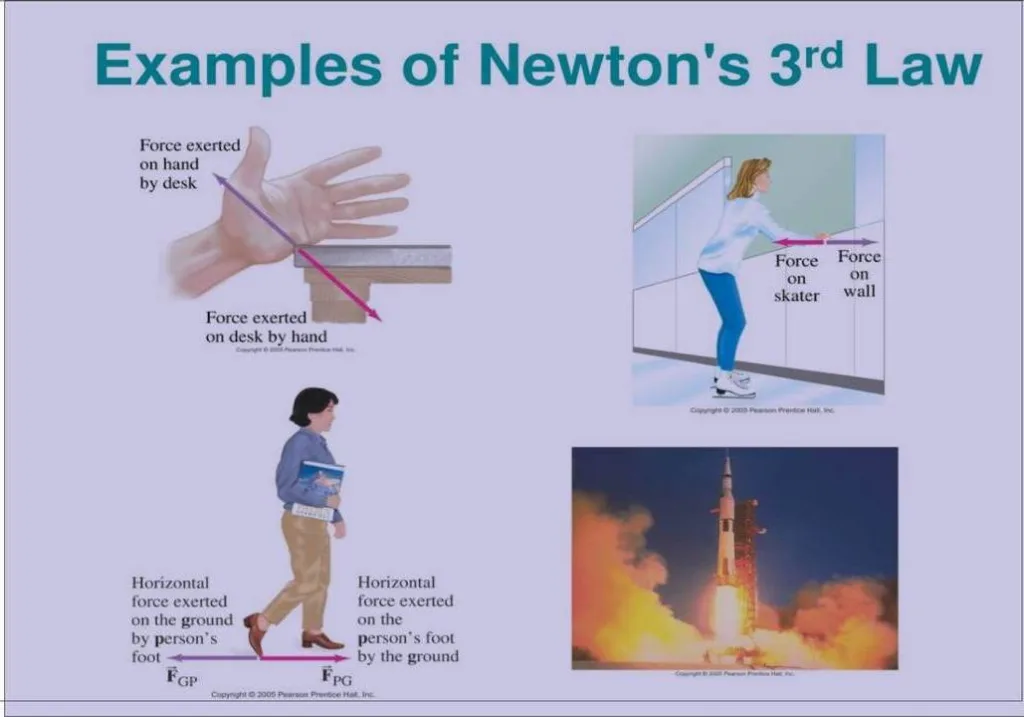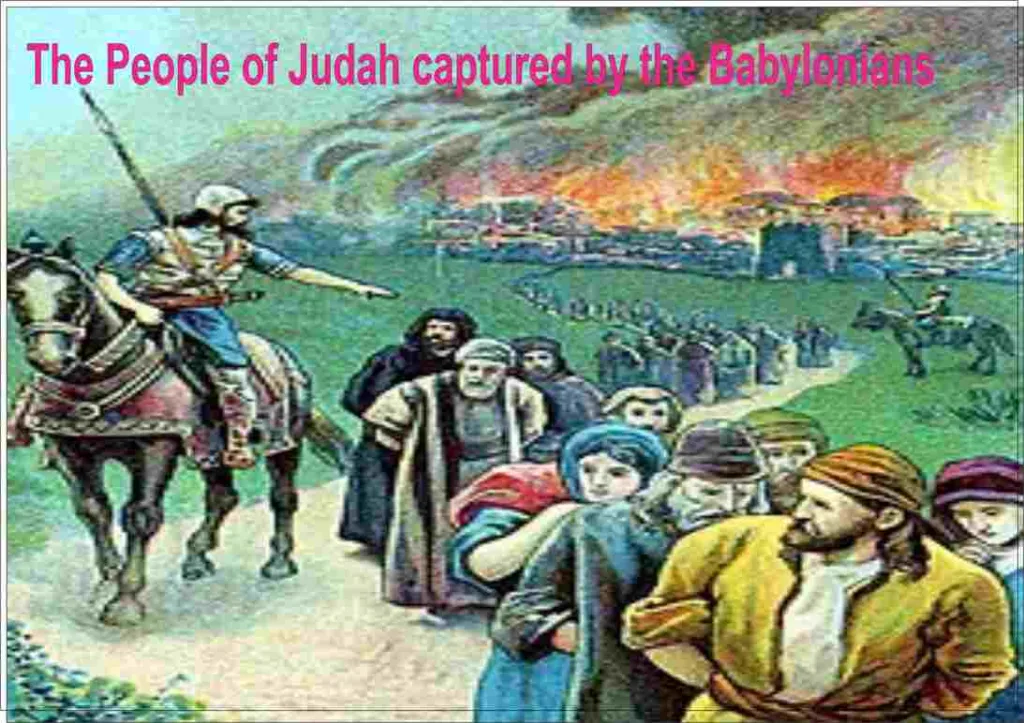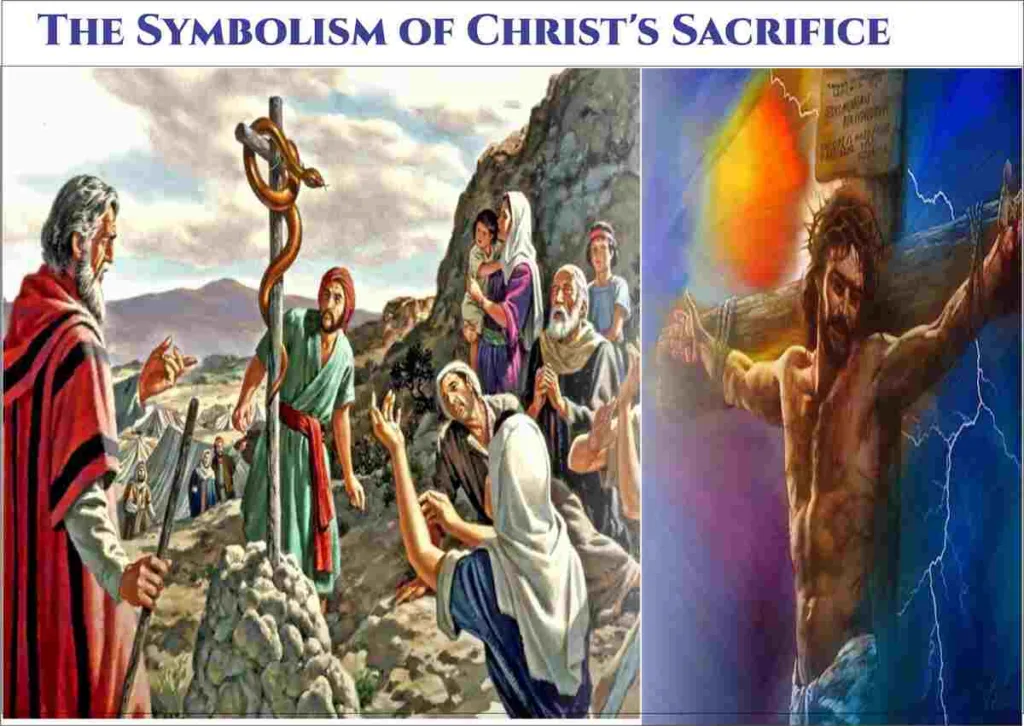HOMILY OF THE 4TH SUNDAY OF LENT, YEAR B.
1ST READING (2 Chronicles 36:14–16; 19–23); 2ND READING (Ephesians 2:4–10); GOSPEL READING (John 3:14–21)
Greetings in the name of our Lord Jesus Christ. Dearly beloved, I welcome you on this fourth Sunday of Lent, which is traditionally known as “Laetare Sunday,” meaning Rejoice. It is derived from the Latin translation of Isaiah 66:10–11, which sets the tone for joyful anticipation of the Easter Mystery. Join me to reflect on “God’s unconditional love and the consequences of our actions” in order to draw on the divine graces we need for our spiritual growth.
God’s Unconditional Love and the Consequences of our Actions

Newton’s third law of motion states that “for every action (force) in nature, there is an equal and opposite reaction.” In the physical world, every force exerted on an object results in an equal and opposite force exerted in response. This law emphasizes the interconnectedness of actions and their consequences. In other words, every action we take has a consequence.
Moreover, some of our current problems, which haunt us in diverse ways, are probably the result of our past negative actions. Sometimes, people commit many atrocious acts against others, even against those who show them love without being remorseful or repentant. Consequently, their own evil actions only bring about their condemnation.
Unfaithfulness and its Consequences
The first reading recounts a period of great unfaithfulness and rebellion among the leaders and people of Judah. The consequences of their infidelity to God and their subsequent punishment through exile. It marks the beginning of restoration, signifying a new chapter in the history of the Jewish people. It also highlights God’s unconditional love for the Israelites and the call of Cyrus to allow the return of the exiles to Jerusalem to rebuild the temple.
God’s Unconditional Love and Consequences of Israel’s Abominable Acts

The Israelites committed many abominable acts and never cared about their consequences. Despite the love of God for them and repeated warnings through His messengers, they continued to mock the prophets. They ignored God’s word and followed the abominable practices of other nations. This persistent disobedience and desecration of the holy temple in Jerusalem ultimately led to severe consequences.
Consequently, God’s wrath was kindled to the point where there was no remedy for their actions. King Nebuchadnezzar came and destroyed the temple, broke down Jerusalem’s walls, burned the palaces, and took away the precious vessels. The survivors were taken into exile in Babylon, where they became servants to the king and his sons. That was when they remembered God’s unconditional love and kindness toward them and, thus, cried for His intervention. So, if such a disaster were to befall the Israelites, it suggests that God might allow us to face similar calamities in life whenever we offend Him without restraint (Isaiah 1:19–24).
God’s Unconditional Love in Israel’s Restoration through Cyrus

Out of compassion, God called Cyrus, king of Persia, and issued a proclamation throughout his kingdom. He acknowledged that the Lord, the God of heaven, had given him all the kingdoms of the earth. And he was charged with rebuilding the house of God in Jerusalem. Consequently, he encouraged the people of Judah who returned from exiles to undertake this task, offering them his blessing.
Meanwhile, the period of Israel’s exile lasted until the rise of the Persian Empire. This fulfills the prophecy of Jeremiah that the land would observe its Sabbaths and remain desolate for seventy years. Yet God never allowed them to perish but saved them. This is a demonstration of God’s unconditional love! That is, loving someone despite their lack of desirable qualities or anything to offer you.
The Symbolism of Christ’s Sacrifice: God’s Unconditional Love for Eternal Life

In the Gospel, although God allowed people to face the consequences of their actions, He still extended His loving mercy on them through the death of His only begotten Son, Jesus Christ. Despite the atrocious actions perpetrated by humanity, God still overlooked them (Romans 5:8). This was because He did not want anybody to perish except those who willingly wished to perish. That is unconditional love, which entails “sacrificing and doing good to people,” regardless of what they have done to you (Luke 6:27–38).
Moreover, while speaking with Nicodemus, Jesus Christ highlights the significance of His upcoming crucifixion and the eternal life it offers to those who believe in Him. Let us reflect on the salient points from His interactions with Nicodemus.
1. The Symbolism of the Serpent:
Jesus Christ draws a parallel between Moses lifting up the serpent in the wilderness to save the Israelites from death and His own impending crucifixion. Just as the Israelites looked upon the raised serpent and were saved, so too must people look upon the Son of Man lifted up to have eternal life (Hebrews 12:2).
2. God’s Unconditional Love and Sacrifice:
The passage emphasizes God’s unconditional love for the world, demonstrated through the sacrificial gift of His only-begotten Son. This act of love provides the opportunity for humanity to have eternal life through belief in Jesus Christ (John 3:16).
3. The Purpose of Jesus’ Coming:
Jesus clarifies that His purpose in coming into the world was not to condemn it but to offer salvation. That is, to demonstrate God’s unconditional love for humanity. Those who believe in Him are not condemned, while those who do not believe are already in a state of condemnation due to their lack of faith (Mark 16:16; John 3:18).
4. The Contrast of Light and Darkness:
The passage highlights the contrast between light and darkness, symbolizing the struggle between good and evil. Those who embrace evil prefer darkness and avoid the light, while those who do what is right come to the light. They allow their deeds to be seen as wrought in God (John 3:19–21).
This gospel pericope invites us to contemplate God’s unconditional love and the sacrificial offering of Jesus Christ for our salvation, calling us to reflect on our beliefs and actions. As the Son of Man is lifted up for our eternal life, it also prompts us to consider the choice between embracing the light of truth for salvation or clinging to the darkness of evil for condemnation.
The Transformative Power of Grace and Faith in Jesus Christ

In the second reading, St. Paul emphasizes the richness of God’s unconditional love and mercy towards humanity, highlighting the transformative power of grace and faith in Jesus Christ. He also speaks on the believers’ spiritual rebirth and their purpose in fulfilling good works prepared by God. This underscores the unmerited nature of salvation, the believers’ elevated status in Christ, and their divine calling to engage in righteous deeds.
Certainly, the only way for us to reciprocate this unconditional love of God is to love Him back as well as our fellow human beings. This love is founded on belief and trust. We cannot love someone if we do not believe in or trust that person. Also, our love for others should not be based on their qualities, but because they are God’s children. Most importantly, we must have a strong faith in God and trust Him with all our hearts (John 14:1).
Conclusion
My dearly beloved child of God, this reflection serves as a powerful reminder that our actions, whether positive or negative, have far-reaching consequences. It is a call to acknowledge our past mistakes, seek forgiveness, and strive for a life aligned with God’s will. Despite our sinful nature, Jesus Christ redeemed us. This was not because of our own efforts but because of the special love and grace of God via faith (Ephesians 2:8–10). So, as we reflect on God’s unconditional love and sacrifice of Jesus Christ, we are encouraged to embrace the light of truth, practice love and compassion towards others, and engage in good works.
Furthermore, let us commit to living a life that respects God’s unconditional love and mercy shown to us by extending them to others without holding any grudges (Matthew 6:12–15). That is, loving someone despite their lack of desirable qualities or anything to offer us. Remember, the love we show to God and to people is a proof of our faith and trust in God. Therefore, let us believe, trust, and love wholeheartedly, for in doing so, we fulfill our divine purpose and reflect the grace that has been bestowed upon us.
Prayer:
May the Almighty God forgive all your sins and deliver you and your family from the forces of darkness. May God’s unconditional love and mercy envelope you and empower you to show genuine love to others through Jesus Christ, our Lord, Amen.
Peace of Christ be with you…
Rev. Fr. Benjamin Okala, C.S.Sp.




